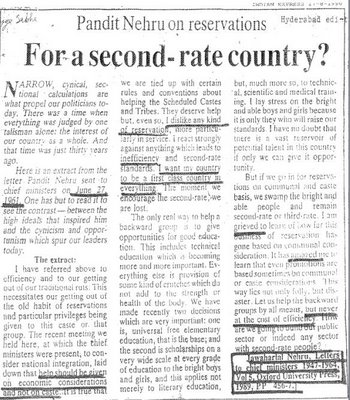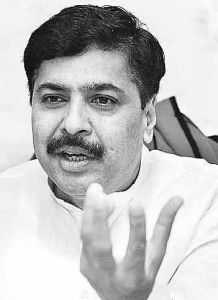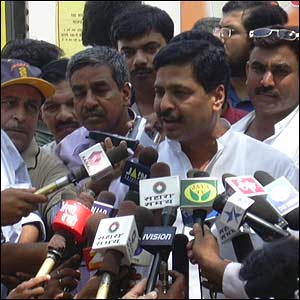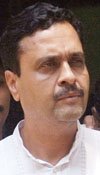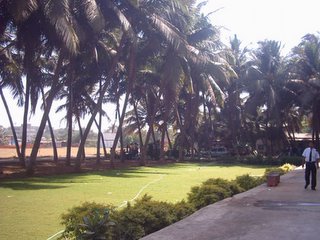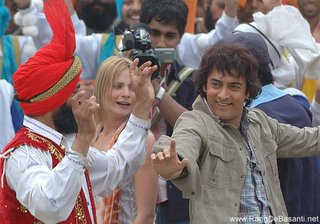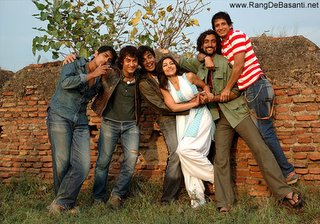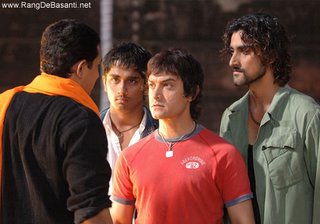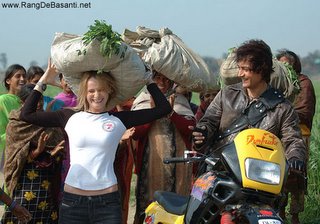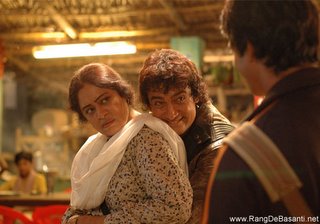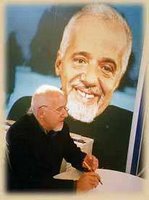FACES & EYES
-NIMISH
6th Feb 2006.
My eyes are extremely dry. And I’m not kidding when I say that I literally use an eye lubricant daily so that I could develop the most required tear film around my eyeball. Things that touch my heart do not generally come out of my eye. To be frank the last time I could feel my eyes wet with emotions was on 11th sept 2003, when an academic disaster rolled like a glacier and left me shattered. That was the time when I saw a major dead-block in my career graph, stooping down my hopes and my dreams. It took two and a half years ever since to feel the same experience.
It was 26th Jan 2006, when the director who has been doing theatre in my college for about a decade gave me an opportunity to perform in his play. Just a day before he made up this statement wherein he could make up some space for me, in his already set up play, and he did stick to his word when he called me back the next morning. I became nostalgic, about the fact that a year ago I had a dream to work for the college play that couldn’t work out since the play was scrapped. My audition then, helped me get a direct entry as a lead protagonist in another play released six months back, when another opportunity clashed its dates with this one, my dream to work for a college play never turned out to be a reality.
Stage had always been my passion. Back during my school days, I performed a role of a mere courtier in a king’s court. With no dialogues, no expressions, all I had to do was stand in a corner with my profile to be exposed to the crowd. All this was merely to get a feel of the stage. The lights above, the curtains moving apart and the crowd sitting below in an anticipation of some entertainment were all fascinating. Then came an opportunity to work in a modern art play in my college days. Being a hardcore Agni House group member in R.D.National College, I gave my fullest to make the best out of the Agni House play, titled “The Poster”. When the curtains then fell back together, I could feel how lucky I was to get selected in the audition. I pounced on every opportunity, whenever I got to entertain the crowd with my acting skills.
With so much of heat for the stage I wonder why did it take more than two years for fate to introduce me to the Drama group of my engineering college (PVPPCoE)? And in the second academic year of my engineering days, it was mere introduction to the drama group. Working with them never worked out. I could never see the stage lights, the crowd’s anticipation, the applaud, and the appreciation about my work. Everything seemed to halt for more than two years. It took more than just pains to say goodbye to a highly talented team, and a very much versatile director two times before, and thus it was a thrill to get the opportunity for the third time now.
It was evening of 26th Jan 2006, and I was in our college’s seminar hall in middle of about five to six actors amongst the regular troupe, the director and the person whose part I was about to perform. He had been a regular actor for the role given to me and won appreciation around the city to do complete justice to the character. It was his absence for the day of the play that generated my presence for the same role. All eyes poked me, and I entered the set with full zest to complete my part with an applaud of appreciation at the end. I didn’t feel victorious until the director pointed out the nature of the character that I portrayed, which was very much different from the one played before yet could fit in perfectly to complete to jigsaw. “Nimish makes the character look like a spoilt brat, which is exactly contrary to one that was played before.” These words boosted the confidence in me, as all could make out what I had decided for the character fifteen minutes ago while reading the script. In the same confidence I recited the second plot of my entry and marked victory in almost everyone’s book. But I was new in the group, the rest of the actors, director etc were certainly missing their old buddy, and welcomed my entry with a condition that if in any case, the original actor found a chance to come back, he will be given the first preference. I had to nod.
The next day, I kept juggling between my cultural activities and the play practice. Being the newly appointed cultural secretary of the college on one hand, and being an actor selected for a play to be showcased tomorrow, on the other hand, I felt the weight of both things equally heavy. That evening we could make it to the actual stage for a final real time rehearsal. A call from my friend few minutes before told me that I had fared very badly in my semester five result. But I could forget about it all, when the curtains closed, and it was I, and the rest of the troupe behind them now. Once again after almost two years I could see the stage lights flashing from above, the set all ready where we are about to perform. The experience was good enough to make me get into my character and give the best out of me. The show was brilliant with everyone’s contribution being the best. I was spotted with a sunken jaw when I saw the last dance sequence. It looked simply marvelous in the U.V. The night I went to college to witness my result, as well as to collect one of the props required for the final drama tomorrow.
Waving goodbye to everyone at home, on the 28th of Jan 2006, I took off for my first work with the college drama, and looking at few parameters ahead, probably the last drama. My grandparents took pride when they looked at me. I always assume that I have inherited my acting from my grandfather, who has won few accolades in his old acting days. Like him, even I wish to carry on with my acting as a well-polished hobby.
The green room of the auditorium was now packed with the clan. We went through the whole script twice to make sure that things are perfect. There were still 3 hours left for the show, and I was confident to be a perfect ingredient of the team. After the dialogue rehearsal, I went directly to the stage to get a complete feel of the situation I would be in after about three hours. The stage had perfect warmth to welcome me in. The set, lights above and the microphones everything was activated. On the blue covered empty chairs raised an illusion of about 350 people waiting for me to perform.
Everything was happening, as I would wish for. Suddenly in one corner of the auditorium, I could see the man for whom I have tremendous gratitude. It was his departure from the show that brought in my entry. Thus in a way it was due to him, that I got my first and probably the last opportunity to work on the stage for my college. But I wondered what he was doing in the auditorium, since he opted out of the play. According to the director, that boy had sacrificed the character for me, which need to be an obvious situation for me. I had worked hard to polish the character. Now anyone else performing in there would be like snatching away my baby.
But soon, I realized that the baby was never mine. When I was requested to back out by the boy, I placed he ball in the director’s court. Bound by old emotional ties, the ball got placed, not in my favour. I was selected to be out of the show.
“You were given warning before.” “But why did you have to be a good guy?” “What else could I have done?” “You could have just said no, when he asked you to back out.” “ I can’t do that on someone’s face” “You have to learn that, or else things will get complicated.” “Ok, what am I supposed to do now? Is it that I have lost my opportunity forever?” “I’m afraid, I should say yes” “What do you mean?” “I mean that, in future you won’t be able to find out time for all this. This was your first and last chance and you missed that too.” “Ok, so what do I do next?” I closed my eyes. All the events in past few days flashed back in front of me. The performance, the dance, the wonderful moments that I spent with few, the stage, the lights, the curtains etc. I was going to miss it all. I felt the tear film getting developed naturally. Then I opened my eyes and came to the realization that I was sitting on the edge at the Marine Drive, where in front of me lay an endless sea. Few rag pickers below were searching deeply for their rags. “Will it help you in any way if you just sit here?” “You are right. I’ll make a try.” “That’s the spirit” “I still won’t be a bad guy to snatch away his role.” “What, are you a kid?” “What do I do then?” “At least get up from here, go to him, and ask him whether he can take his words back.” “ Yeah, I won’t die in the process, huh!! Why not try that?” “You are a kid, now at least move your bump off this place”
I got up from the seat, crossed the road, and went straight to the auditorium, where just outside, people had gathered for a small party, a tea party. I directly approached the guy, but before I could open my mouth, he apologized. “I have no personal enmity with you. I have been doing this role ever since the play has started. The crew, our regular audience, the judges’ etc. everyone are used to see me play in that role. I have emotions attached to the role. I’d never raise a finger about your inability to pick up the role. As a matter of fact you were doing the part much better than what I do. But we just can’t break the tradition.”
“Where did I go wrong? How did I land into this position? This is unfair. May be this is marking the end of it all. May be my travel with the stage was only with this point.” I looked up at the lights again, the closed curtains, and few people practicing behind it. Then I went into the green room, found a lonely place, closed my eyes, and waved goodbye to the backstage in my mind. Now for the first time in past 2 and half years, I was actually crying. It is too hard to say goodbye to something you’ve always wanted to do.
“You are full of negative thoughts. What makes you think to mark an end here?” “Now I just want to adore theatre as a mere spectator.” “Is that your hobby?” “Yeah I want to be a critic. Even this can be a good hobby. I’d love to do that.” “But don’t you think you are killing your desire to act on stage?” “May be you are right. I just can’t kill my wish. There has to be some way out here.”
Now I looked straight, I could see the endless sea once again in front of me, the sun was now setting down. I looked in the watch, the show in the auditorium just half a minute away was just about to start. I got up from the seat at Marine Drive, and ran upstairs to the auditorium to watch the curtains just opening for a brand new play.
-NIMISH
 In such movies you will usually find Shrek punching his fist hard at you, jumping from the screen to your seat and performing other acrobats that you will give you the 3rd dimension of Shrek. But have you ever imagined the 4th dimension of Shrek?? Imagine Shrek coming out of the theatre screen and moving in and around the theatre. Imagine you are on the seats rotating in 360 deg and the whole plot of “The Shrek” is playing around you as if it is an illusion. Introducing the 4th dimension or this is what I would nick name it as the “Illu-Vision” or I.V. I.V. should be the future version of our current T.V.
In such movies you will usually find Shrek punching his fist hard at you, jumping from the screen to your seat and performing other acrobats that you will give you the 3rd dimension of Shrek. But have you ever imagined the 4th dimension of Shrek?? Imagine Shrek coming out of the theatre screen and moving in and around the theatre. Imagine you are on the seats rotating in 360 deg and the whole plot of “The Shrek” is playing around you as if it is an illusion. Introducing the 4th dimension or this is what I would nick name it as the “Illu-Vision” or I.V. I.V. should be the future version of our current T.V. 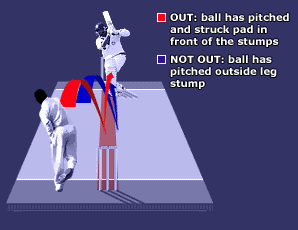 an illusion of a ball in full pace comes from behind and passes your body and hits the pads. With a view as close as 2 feet away from the batsman, there is no ambiguity that he is out and you again zoom out to get back to the “North stand”
an illusion of a ball in full pace comes from behind and passes your body and hits the pads. With a view as close as 2 feet away from the batsman, there is no ambiguity that he is out and you again zoom out to get back to the “North stand”

